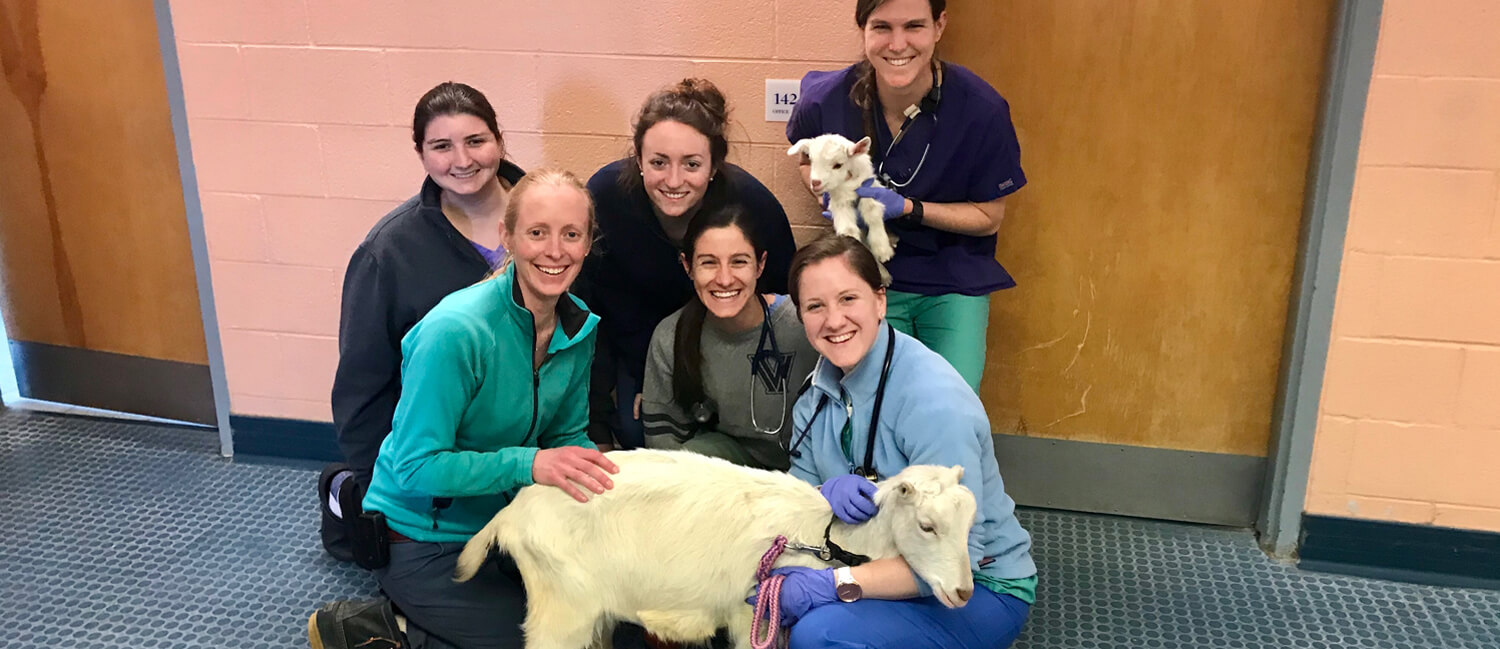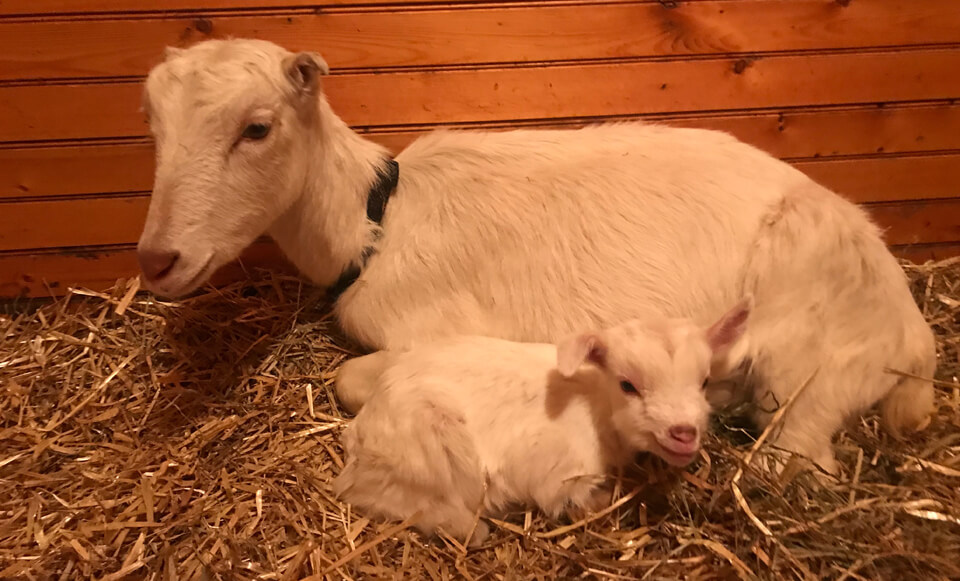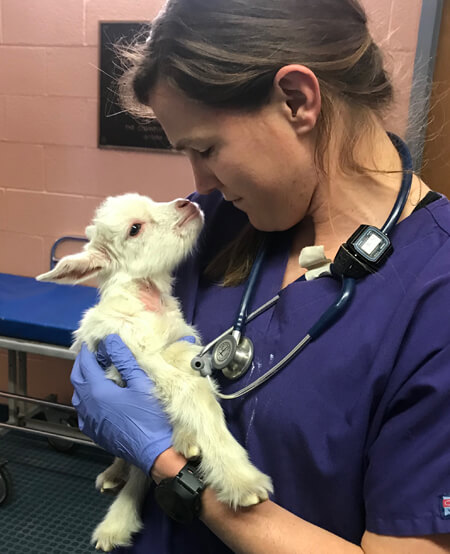
The week of March 18 started with joy and excitement for Mary Ann Bucklin and her family, when, in the earliest hours of Monday morning, their goat Ivory gave birth to a doeling. But things soon took a turn, leading to five days of ups and downs (and ups) for the baby they’d named Daisy.
“On Monday morning, we heard sounds coming from the barn and found Ivory had given birth overnight,” Bucklin explained. “We noticed the kid wasn’t nursing, and she fell over whenever we helped her stand. Following our veterinarian’s advice, we tried feeding her with a syringe, which perked her up but not for long. Our vet told us to take her to the New Bolton Center emergency room.”
Penn Vet admitted both goats. “We did a complete work-up of each one. Ivory was healthy. Daisy’s heart rate and breathing were ok, but she was weak and had a low body temperature,” said Dr. Michelle Abraham, Assistant Professor of Clinical Critical Care Medicine. “Her mucus membranes were congested and blood sugar profoundly low. So, we administered an antibiotic to clear potential infections and helped her nurse.”

First the Good News...Then the Bad
Within a few hours, Daisy looked brighter.
“New Bolton Center called us that night to say Daisy was improving, and we went to bed hopeful,” said Bucklin. “But the next morning we got a call that she wasn’t doing well and had a 50/50 chance with intervention.”
Overnight Daisy had become increasingly lethargic, and her glucose levels were dangerously low. Her care team—veterinarians, students, and volunteers, who’d fallen in love with the little goat—circled around.
“Someone was with her every minute. We were doing everything we could to help her to get better,” said Amanda Hardcastle, an extern from the University of Tennessee, and one of four students assisting on the case along with Penn Vet students Megan Caiazzo, V’20, Gabrielle Faragasso, V’20, and Stefanie Gayer, V’19.
Daisy’s treatment included a steady flow of fluids and dextrose during the night, but by morning her condition had deteriorated. She had diarrhea and required oxygen therapy when her skin started turning blue. After multiple tests, Abraham diagnosed neonatal sepsis and septic shock, a highly fatal condition caused by serious infection. Daisy became comatose very quickly and was having trouble maintaining her blood pressure.
“Because the kid didn’t nurse in her earliest hours of life, it’s possible she didn’t ingest the colostrum, a milky substance rich in antibodies that helps newborns develop a healthy immune system to fight infection,” explained Abraham.
Abraham gave Daisy an antitoxin, an aggressive course of antimicrobial medications, and constant infusions of fluids and medications to help her heart beat and maintain her blood pressure.
 TGIF (Thank Goodness It’s Friday)
TGIF (Thank Goodness It’s Friday)
Slowly, Daisy improved and wanted to nurse. Every day, Bucklin received a call from New Bolton Center about the goat’s condition—“we really appreciated these calls and hearing she was getting stronger,” she said.
By the end of the week, Daisy began to show her sparkly personality and nursed unprompted. She was discharged on Friday, going home to live with Ivory, two other goats, two dogs, and eight humans.
“When we picked her up at the hospital, we were surprised by the outpouring of emotion,” remembered Bucklin. “Everyone who cared for Daisy greeted us. They clearly adored her and were so happy she pulled through. It was like a mini-celebration—and great contrast to the start of the week!”